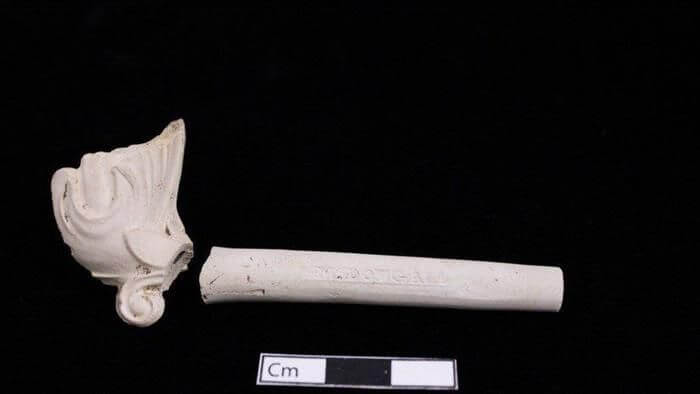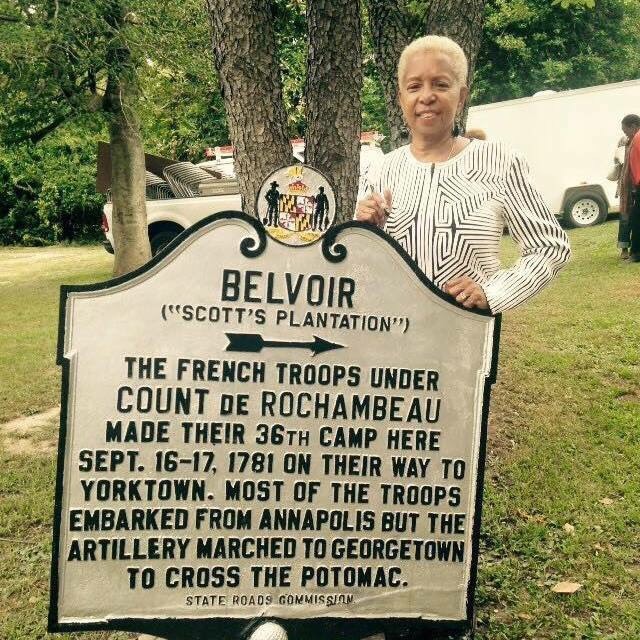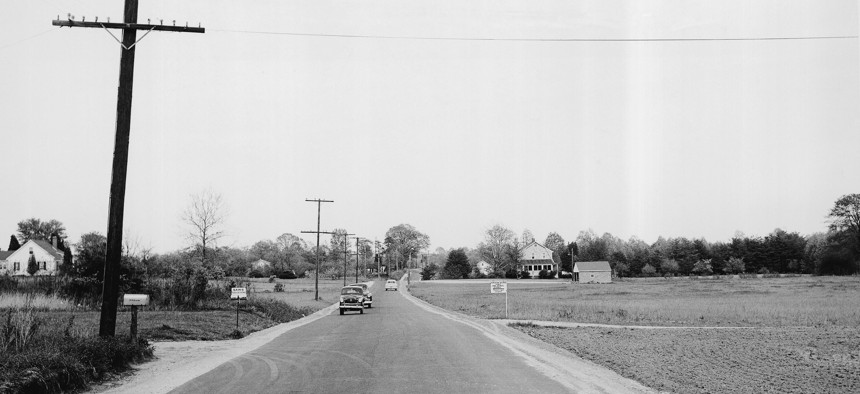Connecting state and local government leaders
State archeologists in Maryland are digging up the history of slavery in the state, connecting the DNA of an enslaved woman who lived on a plantation 200 years ago to modern-day descendants in Sierra Leone.
A one-inch grey pipe stem excavated by Maryland state archeologists doesn't look like much. But this artifact dug up on a site near a rural stretch of highway eventually led to an important clue about the lives of enslaved people in the state about 200 years ago.
DNA found inside the stem was identified as belonging to a woman and linked to people currently living in Sierra Leone—a rare breakthrough in using genetic testing to uncover the history of people divorced from their homelands in West Africa when forced onto slave ships.
Although she’s been working at the former tobacco plantation named Belvoir since 2014, Julie Schablitsky, the chief archeologist for the Maryland Department of Transportation, said this discovery was unprecedented.
“Somehow, a pipe stem that we pulled from underneath the floorboards of a probable slave cabin still had remnants of human saliva,” Schablitsky said.

Tucked along the side of Generals Highway near Annapolis, the remains of the 700-acre plantation ended up being a rich treasure trove of artifacts, particularly from slave quarters that Schablitsky’s team recently uncovered.
Schablitsky is one of many archeologists around the country who work with state transportation departments to uncover the history hidden underneath and along highways, part of a long tradition known as “salvage archeology.”
Salvage archeology is the practice of ensuring that sites of historic significance are preserved and their artifacts collected and documented when roads are built over previously undisturbed land. State governments drive these preservation efforts, and have done so for longer than many might imagine. In 1937, Nebraska was one of the first states to require that highway contractors suspend work and call in archeologists whenever historical artifacts were found.
Though the measure is still in place today, the federal government has also taken an active role in the preservation of historical highway finds. As the interstate highway system was taking shape in the 1960s, construction vehicles drove over thousands of miles of territory to connect the country, prompting the passage of the 1966 National Historic Preservation Act, which in turn created the Highway Archeology program. A collaboration between the Federal Highway Administration and State Departments of Transportation, the program regulates salvage archeology during construction and supports state archeologists like Schablitsky as they explore sites of historical importance.
“You never know what you’ll find until you dig. As archeologists with the DOT, we get involved in highway planning to survey sites and determine what the risks to preservation there are,” Dr. Schablitsky explained. “When a historical site can’t be worked around, that’s when we coordinate with the State Historic Preservation Office to make sure we’re following the law and mitigating impacts.”
When they make discoveries, a major part of their work is public outreach, such as interpretive signage, like posts along highways, publications on the state’s website, and informative pamphlets. “We don’t dig a bunch of artifacts out of the ground and then put them in a dusty box at a museum,” Schablitsky said. “We want them to be used for greater educational purposes.”
The current project Schablitsky is overseeing is a corridor study along the highway that includes Belvoir. Though each project the state’s archeologists take on is different, Belvoir has been one of the longer site excavations, as the work has been ongoing for five years now.
The site is an exceptionally rich one, and the pipe was a particularly exciting find because of the DNA on it, Schablitsky explained. “This opens up the possibility to ask and answer more specific questions.”
Artifacts like pipes normally don’t contain any DNA, as it degrades very quickly outside the body. But since clay is porous, absorbed saliva allowed researchers at the University of Illinois at Urbana-Champaign to isolate the DNA’s region of origin to Sierra Leone. The results were then sent to the University of Copenhagen, which further triangulated the DNA to the Mende people, an ethnic group that primarily lives in southern and eastern parts of the country. Historical documents then confirmed the existence of a slave trading route between Annapolis and Sierra Leone, the last key to the puzzle.
Findings like this pipe also open the possibility of connecting with descendants of historical sites to help them learn about their own lineage.
Wanda Watts is one of the descendants of people formerly enslaved at Belvoir who was contacted by the Department of Transportation when the excavation began there in 2014. Since then, she has visited every few months, watching as slave quarters were unearthed and thousands of artifacts were preserved. She was particularly excited about the DNA link to Sierra Leone.
“As African Americans, it feels as if we begin and end right here in the U.S. We have no history beyond these shores, so to find a connection to Africa like this is exhilarating,” she said. “It gives us a sense of where we belong.”

Watts and other descendants have been integral to the preservation process at Belvoir thus far, even helping to establish a gravesite for the slaves who lived there.
That participation is exactly what Schablitsky hopes for. “As an archeologist for the state, I always have in the back of my mind: how is this work going to benefit the public? What will they learn from this? In the end, I work for the people, and I need to think about how my work will benefit them not just today, but in the future as well,” she said.
The archeological team and the descendants are now working together to outline how these findings will help future education efforts about the site, a project that excites Watts. “When our ancestors were enslaved, they lost their names, their cultures, their religions, their families, everything,” she said. “When we build connections to them now, we bring some of that back.”
Emma Coleman is the assistant editor at Route Fifty.

NEXT STORY: 3 Ways $2 Trillion for Infrastructure Can Fight Inequality Too




